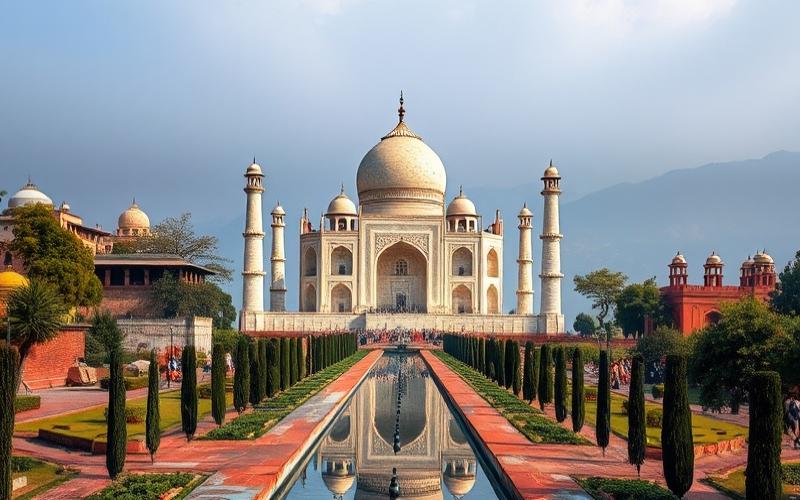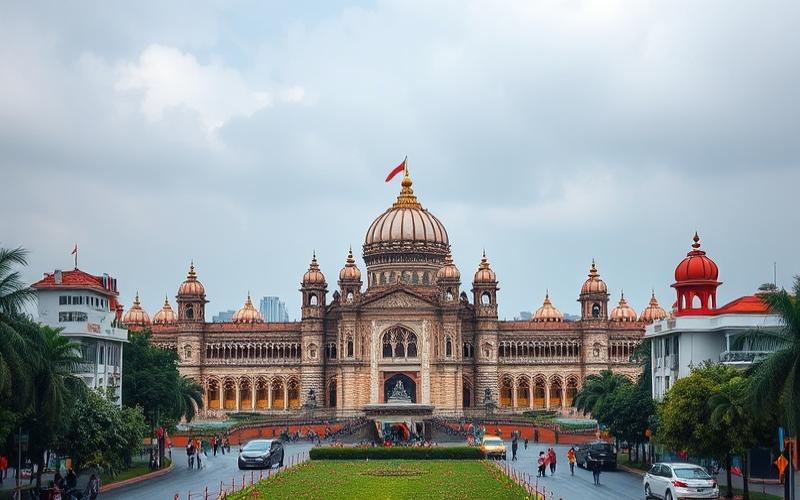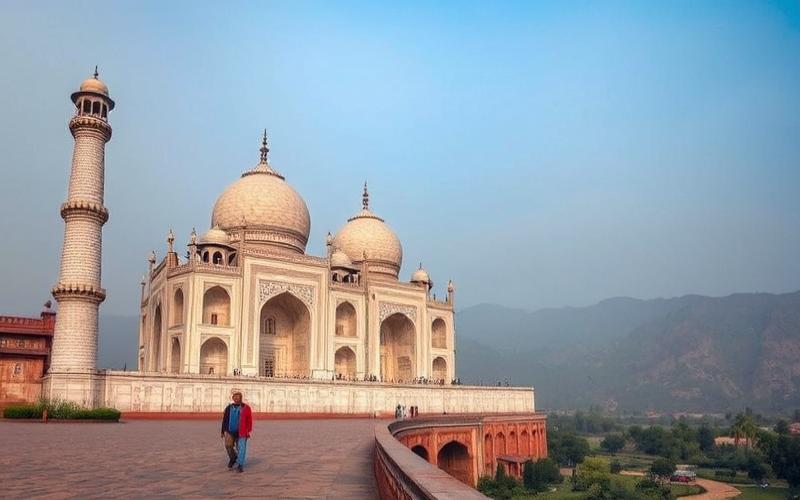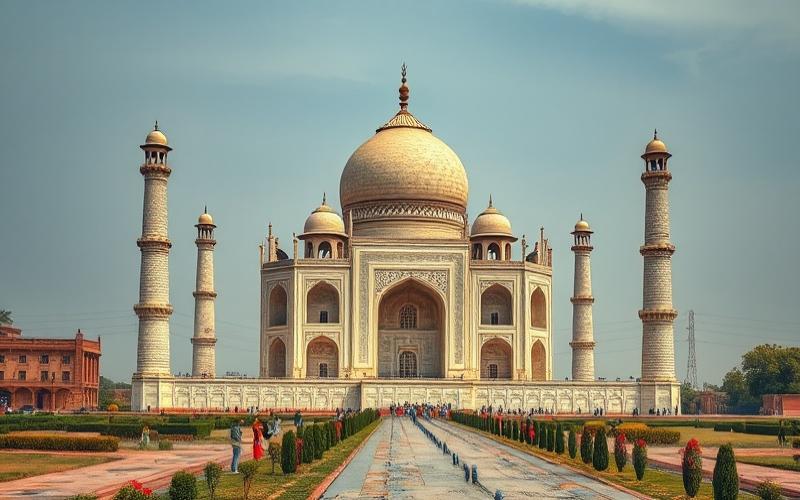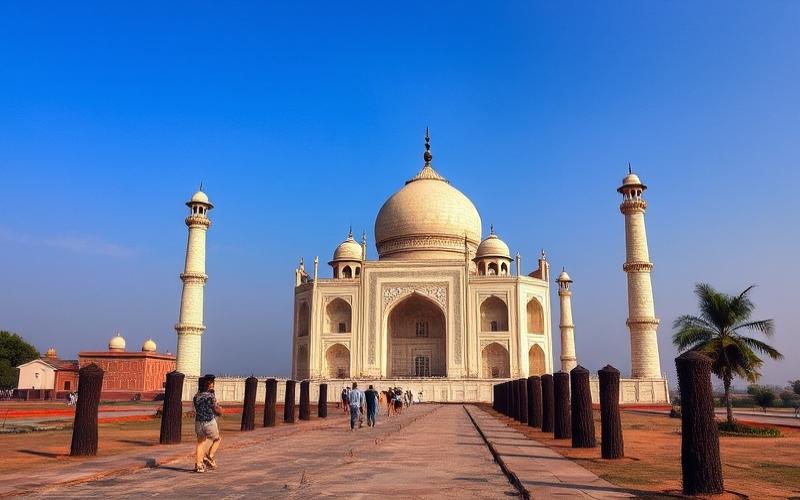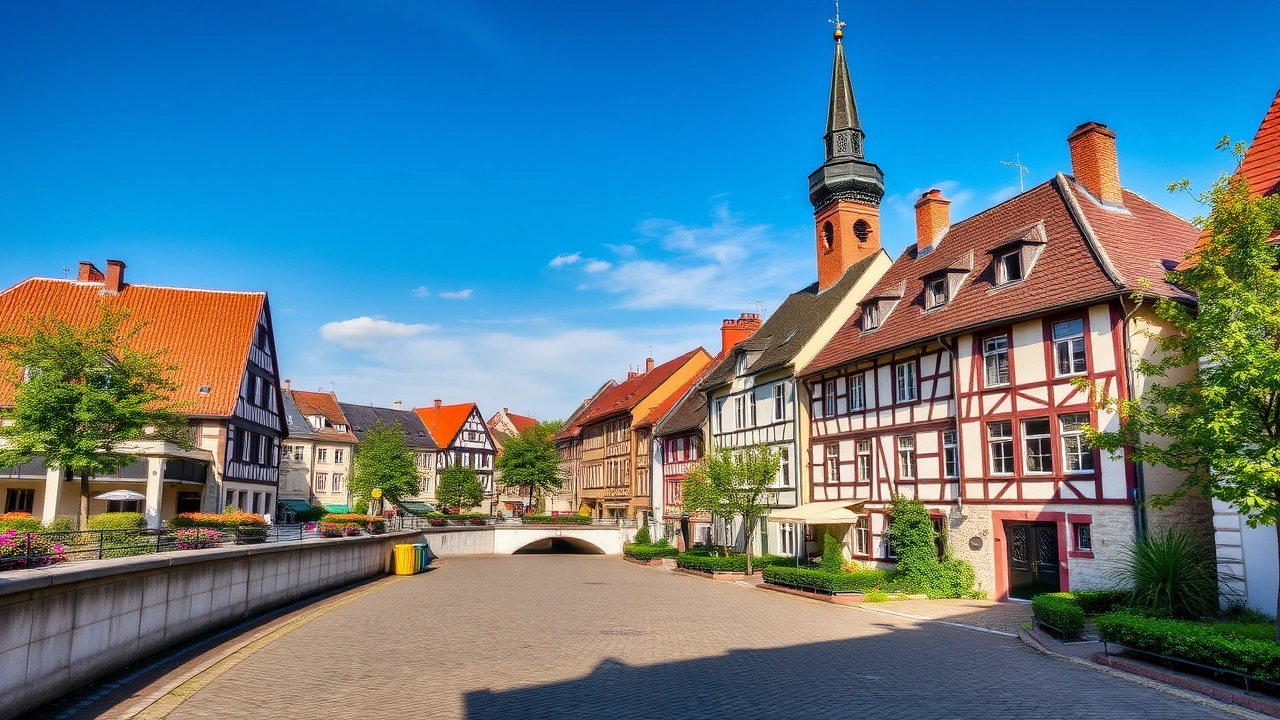
 Published on and written by Cyril Jarnias
Published on and written by Cyril Jarnias
With India’s booming economy attracting more and more European expatriates, it’s crucial to understand the benefits that European Union membership offers these citizens living abroad.
From questions regarding residency rights and access to quality healthcare systems to professional opportunities and individual freedoms, this article examines how EU support mechanisms play a central role in the expatriate experience in India.
Discover how European regulations and bilateral agreements facilitate a smoother transition and ensure optimal protection for those choosing to settle in this dynamic, contrast-filled country.
European Expatriate Status: Undeniable Advantages in India
European expatriates in India benefit from major economic and professional advantages, driven by the opening of the Indian market and a series of recent reforms that facilitate the integration of foreign talent.
| Advantage | Details |
|---|---|
| Access to a fast-growing market | India, with its young population and economic dynamism, offers prime ground for innovation, entrepreneurship, and investment. Technology, healthcare, renewable energy, and service sectors are experiencing sustained expansion. |
| High professional opportunities | New visas (Business Visa Plus, Startup Visa, Skilled Talent Visa, Investor Visa) facilitate the arrival of European experts in priority sectors (digital, biotech, AI, finance, engineering). Qualified profiles benefit from accelerated procedures and recognition of their experience. |
| Favorable cost of living | The standard of living in India is significantly lower than in most European countries, allowing expatriates to optimize their purchasing power while enjoying a dynamic professional environment. |
The specific rights stemming from EU-India bilateral agreements enhance mobility and recognition of professional qualifications:
- Partial recognition of European degrees in certain strategic sectors, facilitating access to employment or entrepreneurship.
- Simplified professional mobility through visa facilitation agreements and sectoral cooperation.
- Enhanced legal protection for European nationals in case of professional disputes or commercial disagreements.
Diplomatic privileges and support from European embassies play a central role:
- Access to legal advisory services, administrative support, and emergency assistance.
- Regular organization of networking events, intercultural meetings, and support for the expatriate community.
- Assistance with schooling procedures, settlement, or resolution of local issues.
Social integration of Europeans is facilitated by:
- A cohesive and dynamic expatriate community present in major metropolitan areas.
- Numerous clubs, associations, international schools, and cultural events promoting exchanges and discovery of Indian culture.
- The growing openness of Indian society to international profiles, particularly in urban and technological hubs.
Regarding social protection and taxation:
| Area | Situation for European Expatriates |
|---|---|
| Social Security | Possible access to CFE (Caisse des Français de l’Étranger) for French nationals; for other nationals, frequent use of private international health insurance offering coverage from the first euro spent and including repatriation options. |
| Tax Regimes | Bilateral agreements to avoid double taxation exist between India and most EU countries, preventing double taxation of income and facilitating mobility for executives and entrepreneurs. |
| Healthcare Access | Expatriates prefer the private sector, recognized for the quality of its medical infrastructure in major cities. International insurance allows access to the best facilities and specialists. |
European expatriates in India therefore enjoy a favorable environment for their professional and personal development, supported by legal, diplomatic, and social mechanisms tailored to their needs.
Good to Know:
European expatriates in India benefit from significant economic advantages through access to expanding markets and numerous professional opportunities, particularly in technological and industrial sectors. Thanks to bilateral agreements between the European Union and India, mobility is facilitated, and professional qualifications are often recognized, promoting efficient integration into the local economic fabric. European embassies provide valuable diplomatic support and resources to aid cultural and social integration, while negotiated tax regimes and social security agreements protect the rights of expatriate workers. Additionally, access to quality healthcare services is ensured, allowing EU citizens to receive adequate medical care during their stay, whether temporary or permanent.
Freedom of Movement: A Reality for European Expatriates
Relations between the European Union and India are structured around several bilateral agreements currently under negotiation or already in effect, aimed at facilitating the mobility of European citizens, particularly in professional and academic contexts.
Bilateral Agreements Facilitating Mobility
- EU-India Free Trade Agreement under negotiation since 2007, relaunched in 2022, including discussions on mobility, recognition of qualifications, and simplification of procedures for professional and business stays.
- Migration and Mobility Partnership Agreement, concluded between certain member states (e.g., France) and India, in effect since 2018, facilitating the movement of students, researchers, professionals, and skilled workers.
Facilities Offered by the European Union and India
| Mechanism | Description |
|---|---|
| Visas | Expedited procedures for certain work, study, or research visas for Europeans. |
| Work Permits | Bilateral agreements allowing simplified obtaining of work permits, especially for strategic sectors (technology, healthcare, research). |
| Residency Conditions | Relaxation of renewal and regularization conditions for European expatriates, particularly through single windows or electronic procedures. |
| Recognition of Degrees | Increased cooperation for the recognition of academic and professional qualifications. |
Success Stories of European Expatriates
- A German engineer was able to join a technology company in Bangalore thanks to a work visa obtained in less than a month, benefiting from the EU-India partnership on professional mobility.
- A French researcher joined a research laboratory in New Delhi as part of a university exchange program facilitated by the mobility agreement between France and India, with automatic recognition of her doctorate.
- A Spanish entrepreneur founded a startup in Mumbai, taking advantage of administrative simplification measures for foreign investors from the EU.
Impact of Freedom of Movement on Opportunities in India
- Increased Professional Opportunities: facilitated access to the Indian job market, possibilities to start businesses, join innovative companies, or collaborate on large-scale research projects.
- Personal Development: immersion in a dynamic culture, language learning, development of international networks, enrichment of personal and professional journeys.
- Family Mobility: possibility for family members to benefit from residency, schooling, and integration facilities.
The freedom of movement enabled by agreements between the EU and India opens new perspectives for European expatriates, both for their careers and personal fulfillment, making India a preferred destination for European talent.
Good to Know:
Bilateral agreements between the European Union and India simplify freedom of movement for European citizens, offering them increased mobility means through visa and work permit facilities. For example, these agreements allow for long-term visas and simplify work permit acquisition procedures for European expatriates in India, thus promoting successful professional and personal integration. Many European expatriates in India testify to these benefits, having been able to launch startups or enter innovative sectors thanks to these favorable conditions. This freedom of movement made possible by the EU paves the way for enriching opportunities in India, both professionally and personally, contributing notably to better intercultural understanding and broadening career prospects.
European Rights in India: Protection and Recognition
Overview of European rights applied in India for expatriates
European nationals expatriated in India do not benefit from direct extraterritorial application of European Union (EU) rights: their legal status is primarily governed by Indian laws on immigration, labor, and social security. In 2025, India profoundly modernized its legal framework with the Immigration and Foreigners Act 2025 and the creation of the National Immigration Authority (NIA), which centralizes the monitoring and administrative management of foreigners.
| Area | Applicable Framework for Europeans in India | Institutions or Agreements Involved |
| Immigration & Residency | Indian laws (Immigration and Foreigners Act 2025) | National Immigration Authority, IIMS |
| Labor | Indian labor law | Indian Ministry of Labor |
| Social Security | Indian legislation; certain bilateral agreements | Ex.: Franco-Indian Social Security Agreement |
Examples of main visas: Business Visa Plus, Startup Visa, Skilled Talent Visa, Investor Visa.
Specific Protection Laws Available
- Expatriates benefit from protection against certain discrimination through local law but still regularly report:
- Difficulties accessing housing or certain public services.
- Administrative complexity despite increased digitalization.
- Marked restrictions on real estate ownership: impossibility for non-residents to freely acquire property.
- Social protection depends almost exclusively on the Indian system; only notable exception: a few partial bilateral conventions on social security (e.g., Franco-Indian).
Institutions or Agreements Recognizing These Rights
- National Immigration Authority (NIA): supervises all migration policies and issuance/control of residency permits.
- EU-India Bilateral Agreements: limited in scope—no comprehensive agreement covering all social or economic rights exists to date. Some member states have concluded specific conventions with India essentially covering limited portability of pension/retirement rights.
Comparison Between Protections Offered by the European Union in Its Member States and Those Available for Its Nationals in India
| Aspect | In an EU Member State | For an EU Citizen in India |
| Freedom of Movement | Yes | No |
| Access to Public Services | Broad harmonized access | Access conditioned by visa/local status |
| Transferable Social Security* | Integrated coordination at European level | Limited to a few bilateral agreements |
| Protection Against Expulsion | Harmonized protective procedures | Subject to strict local laws |
*In Europe, coordination ensured via community regulations; outside EU like in India: no automaticity.
Cases Where Rights Have Been Protected or Challenged
Frequently reported examples:
- Unjustified refusal to open bank accounts due to “insufficient local address.”
- Disputes during late/difficult visa renewal despite apparent compliance with initial conditions.
These situations often lead to consular intervention. However, except in exceptional cases involving arbitrary detention or clear violation of international public law (rare example), there is no legal possibility for a European expatriate to directly invoke the community legal framework before an Indian court.
Recent Efforts to Strengthen Through Bilateral Agreements/International Forums
The European Union actively pursues two axes:
- Strengthening through strategic dialogue: regular inclusion in EU-India summits (“EU–India Human Rights Dialogue”) aimed at mutually improving treatment of respective citizens.
- Sectoral agreements: occasional negotiations covering notably:
- Partial portability of retirement pensions;
- Administrative facilitation for investors/researchers;
- Partial mutual recognition sometimes discussed during OECD/G20 forums but without direct automatic effect so far.
⬛ Key takeaway: Europeans settled in India remain almost exclusively subject to local Indian law—their protections are lesser than within the European space itself. European intervention mainly aims to obtain more diplomatic guarantees than direct legal ones. ⬛
Good to Know:
European expatriates in India benefit from certain protection of their rights thanks to bilateral agreements between India and the European Union, although these are generally less extensive than in member states. Indian legislation offers limited protection, but bodies such as the EU embassy play a crucial role in recognizing and defending their nationals’ rights in case of disputes. For example, cases of workplace discrimination have resulted in mediations supported by European embassies, illustrating active collaboration to ensure respect for basic rights. Ongoing EU efforts, via international forums, aim to strengthen legal guarantees for their citizens in India. However, expatriates are advised to familiarize themselves with local legislation and consult their embassy if needed for optimal protection.
Disclaimer: The information provided on this website is for informational purposes only and does not constitute financial, legal, or professional advice. We encourage you to consult qualified experts before making any investment, real estate, or expatriation decisions. Although we strive to maintain up-to-date and accurate information, we do not guarantee the completeness, accuracy, or timeliness of the proposed content. As investment and expatriation involve risks, we disclaim any liability for potential losses or damages arising from the use of this site. Your use of this site confirms your acceptance of these terms and your understanding of the associated risks.



